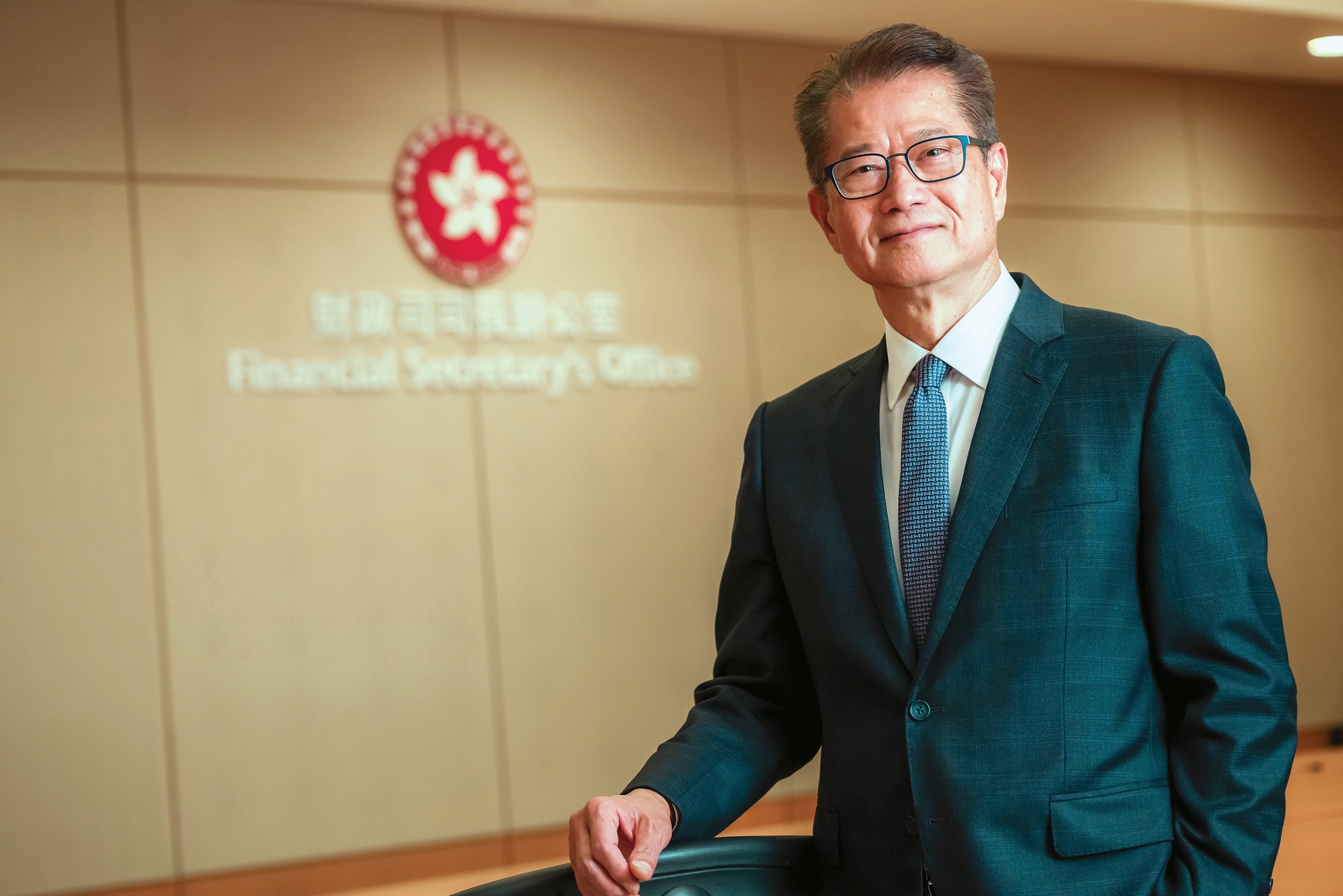
Editor’s note: The Hong Kong SAR National Security Law, enacted on June 30, 2020, has become a cornerstone of the city’s restored stability. As its fifth anniversary approaches, China Daily interviews key architects involved to explore the landmark legislation’s lasting influence on Hong Kong’s governance and society.
The steady inflow of foreign capital and the growing number of overseas firms expanding their operations in the city are clear evidence that the National Security Law of the Hong Kong Special Administrative Region (NSL), by restoring order and enhancing security, has improved Hong Kong’s business environment and bolstered its appeal as a promising destination for investment and fundraising.
The remarks were made by Financial Secretary Paul Chan Mo-po in a recent interview marking the upcoming fifth anniversary of the implementation of the law.
But he also cautioned that a stormy geopolitical climate and persistent uncertainties reverberating through the global economy will continue to test the city’s mettle.
READ MORE: Xia hails NSL as ‘guardian of city’, urges vigilance against threats
Chan said the NSL is widely perceived by international investors and enterprises to have restored order, making it easier for them to conduct business in the city. Investors have therefore used their funds to express their confidence in Hong Kong’s prospects.
Hong Kong stocks’ benchmark Hang Seng Index has increased by about 20 percent so far this year, outperforming major markets worldwide. Chan said that long-term funds from the United States and Europe, in particular, have been pouring into the city over the past few months.
Referring to electric vehicle battery manufacturer CATL, which completed the world’s largest initial public offering this year in Hong Kong, Chan said European and American investors were among the company’s major subscribers, demonstrating Hong Kong’s global financial appeal.
He noted that funds from the US remain significant in Hong Kong, with net inflows continuing even as Washington attempts to curtail US investments in the city.
The SAR government will maintain engagement with US investors, updating them on Hong Kong’s developments and using data and facts to share Hong Kong’s story, Chan added.
He said he is confident that as long as Hong Kong provides attractive opportunities, international investment will keep flowing in.
ALSO READ: Chief secretary: NSL a solid shield protecting Hong Kong
Business climate surveys support this optimistic outlook. Earlier this year, a poll by the American Chamber of Commerce in Hong Kong found that 76 percent of respondents are “optimistic” or “neutral” about the city’s business outlook for 2025. Over 90 percent of companies surveyed said they plan to maintain or expand their investments in Hong Kong over the next two years.
Japanese enterprises echo this sentiment. Nearly 70 percent of firms surveyed by the Consulate-General of Japan in Hong Kong said the city’s business environment has either improved or remained steady, and a majority said the NSL has not impacted their operations.
Moreover, data from the SAR government showed that the number of businesses in Hong Kong with parent companies overseas reached 9,960 in 2024, a 10 percent increase from the previous year.
Japan, the US, and the United Kingdom were the largest source markets besides the Chinese mainland. While the number of Japanese companies in Hong Kong remained unchanged between 2023 and 2024, the number of US and UK firms grew by about 9 percent and 12 percent, respectively.
This shows that businesses are pragmatic, and their investments go wherever there are opportunities for returns, Chan said.
However, he cautioned that financial and economic risks facing Hong Kong are expected to persist, given the complex geopolitical landscape and the unpredictable policies of the current US administration.
READ MORE: Experts praise NSL’s success in balancing legal frameworks
Hong Kong’s financial market, he said, should brace itself for potential fluctuations, including sudden volatility. To address this, the city has established a round-the-clock, crossmarket, and interconnected monitoring mechanism and built strong buffers within its banking system, Chan said.
He also emphasized the importance of economic growth, adding that development and security are two sides of the same coin. As Hong Kong’s position as an international financial center becomes increasingly competitive, those who attempt to undermine the market will face greater costs themselves, he said.
Contact the writer at irisli@chinadailyhk.com


